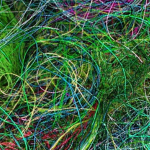Making Things Better After 9/11
Eighteen years. There’s something about that span of time. It’s not marked by a decade, obviously, but it’s the age of majority. Somebody born on September 11, 2001, is now an adult. (On paper, anyway.)
That makes me wonder: Has there been any maturation since that day?
One would find it hard to say that our country has matured, or Western Civilization or any civilization, for that matter. In 2019, the feeling of human society on planet Earth is one of deterioration. That day was a shock to the global system, and one might define the years since as an oscillation between a lust for chaos and a nearly debilitating neurotic need for security.
But that’s not precisely the theme I have in mind right now.
Maturity. Naturally, many (maybe most) people who have survived from that day to this have matured in some respect. GenXers, in particular, were not long out of college at that point and now may be parents and homeowners and people of authority.
For my part, that day changed the trajectory of my writing and, from there, my activities. My first political column, and an early significant publication for me, was an October 2001 essay in the Providence Journal titled, “Who Are These People?,” about a national elite that was already nipping at our moment of unity. The underlying theme was a desperate need to change our country’s models as a way of making things better, in part by deepening our lives:
Beyond concrete acts and statements, we can take the hot air out of the balloons of our elite buffoons by returning to the practice of participating in our own lives and enjoying each other’s company more than that of two-dimensional moving mannequins on the television and looking to thought and activity for entertainment rather than patronizing the buffoons’ silly puppet shows.
This view of mine has matured. There is much, much more to making things better than anger at celebrities, intellectual curiosity, and hanging out with friends. You can’t just make the world a better place by direct action and force of will, and you can’t just make it better by stepping back and standing down. Toppling enemies can create resentment and a vacuum, and unilateral withdrawal from hostilities can inspire triumphal aggression and a different sort of vacuum.
In terms of electoral politics, you can’t just pick a side that feels like it’s a little more correct (or a little less wrong) and work for its success. Fundamentals have to change, and that’s hard work. How we see the world and each other has to change.
This may bring us back to that other theme of chaos and security. It’s a tough line to walk between necessary change and unnecessary risk. It takes some shared sense of an end goal and a deliberate mutual respect.
We human beings find it much too easy to accept just a little bit more chaos if it gives us an advantage over those with whom we disagree. The attacks on political opposition escalate. The erosion of standards when one side has power accelerates (as with the senatorial filibuster). The desire of those with leverage to control is met with a desire of those without it to disengage. And at the end of it all, the buildings come down.
If more real buildings were to come down now, would we even notice, except inasmuch as it gives us another opportunity for accusations and blame? I don’t know. But I do know that a society in which the answer would be a confident “yes” would have to be a society that is more mature. I also know that a central requirement for maturity is valuing it. Those below the age of majority used to thirst for adulthood as the sign of maturity. Now, it seems even some among the elderly crave the privileges of adulthood without its burdens.
Eighteen years feels like it should mean something, but does it? For the sake of never forgetting, it must.
Featured image: A memorial at Justin’s high school for the graduates who died on 9/11/01.




